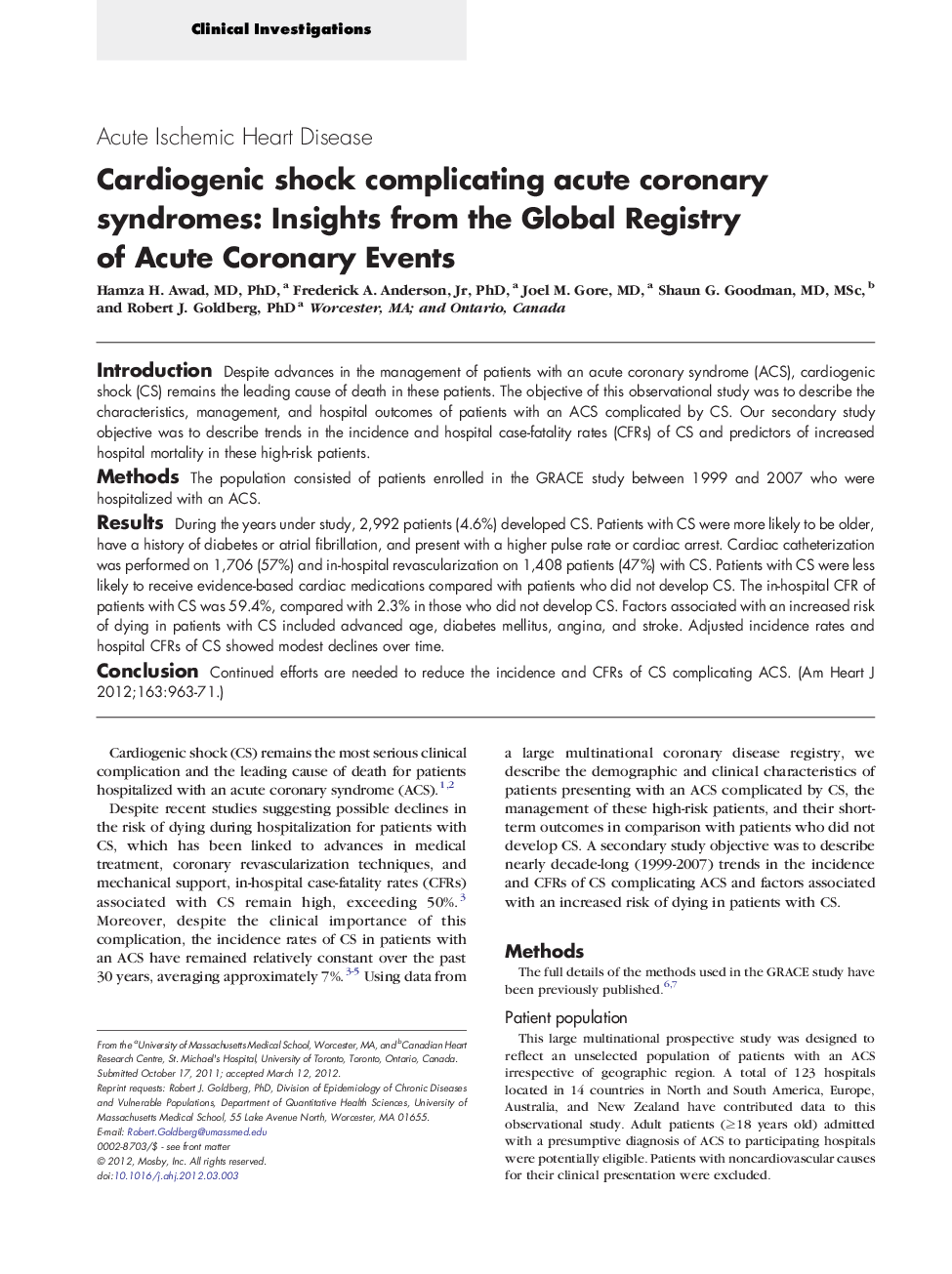| Article ID | Journal | Published Year | Pages | File Type |
|---|---|---|---|---|
| 2849515 | American Heart Journal | 2012 | 9 Pages |
IntroductionDespite advances in the management of patients with an acute coronary syndrome (ACS), cardiogenic shock (CS) remains the leading cause of death in these patients. The objective of this observational study was to describe the characteristics, management, and hospital outcomes of patients with an ACS complicated by CS. Our secondary study objective was to describe trends in the incidence and hospital case-fatality rates (CFRs) of CS and predictors of increased hospital mortality in these high-risk patients.MethodsThe population consisted of patients enrolled in the GRACE study between 1999 and 2007 who were hospitalized with an ACS.ResultsDuring the years under study, 2,992 patients (4.6%) developed CS. Patients with CS were more likely to be older, have a history of diabetes or atrial fibrillation, and present with a higher pulse rate or cardiac arrest. Cardiac catheterization was performed on 1,706 (57%) and in-hospital revascularization on 1,408 patients (47%) with CS. Patients with CS were less likely to receive evidence-based cardiac medications compared with patients who did not develop CS. The in-hospital CFR of patients with CS was 59.4%, compared with 2.3% in those who did not develop CS. Factors associated with an increased risk of dying in patients with CS included advanced age, diabetes mellitus, angina, and stroke. Adjusted incidence rates and hospital CFRs of CS showed modest declines over time.ConclusionContinued efforts are needed to reduce the incidence and CFRs of CS complicating ACS.
